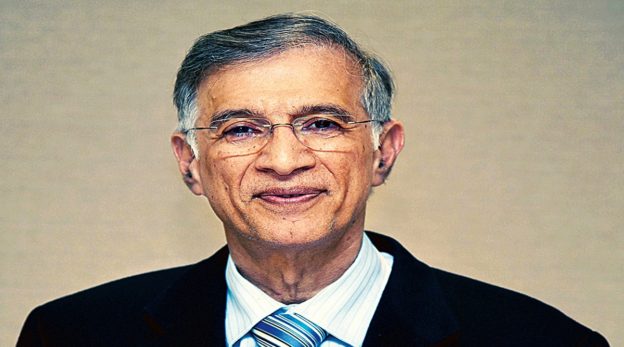The Budget is clearly seeking to strike a balance between macro-growth with micro-all-inclusive welfare, through digital economy and fintech as also tech-enabled development, energy transition and climate action.
When one looks at the impact of the Union Budget, especially on infrastructure and taxation fronts, Finance Minister Nirmala Sitharaman delivered along expected lines. The positive for the Government of India is the scope for higher revenue through tax collection, provided Covid-19 does not result in more lockdowns during FY23.
The FM, as she presented the Budget, said the country is expected to grow at 9.27% in the coming year. She focused on four pillars of development: inclusive development, productivity enhancement, energy transition and climate action.
The Budget is clearly seeking to strike a balance between macro-growth with micro-all-inclusive welfare, through digital economy and fintech as also tech-enabled development, energy transition and climate action. These are measures which augur well for the nation.
Going by the Economic Survey released a day before the Budget, macroeconomic stability indicators suggest the economy is set to successfully take on the challenges of FY23, and the Budget reflects those positive trends.
With a scenario in which the government has seen excellent numbers on the direct tax as also on GST, it was clear that the central government would not tinker with taxation rates — something which must be appreciated.
The Budget has retained focus on economic reforms, and thankfully, it is not structured in a direction to woo farmers and voters. It includes greater focus on capital expenditure, manufacturing and atmanirbharta (self-sufficiency) in defence as also push on infrastructure.
The Budget also focused on Digital India, by granting infrastructure status to data centres. This is a shot in the arm, and brings data centre development at par with other major sectors. This will enable it to avail long-term and cheap credit, bolster data localisation in wake of protection of data sovereignty in the age of globalisation. This progressive step will enable India to become a global data centre hub, one which will get a boost due to favourable geographical location and availability of skilled resources.
In the context of International Financial Services (IFSC), the focus of Budget 2022 is expected to enhance the ease of doing business in IFSC and make it the “go-to” financial hub, but also the one-stop destination for all businesses within the ecosystem.
The FM announced that an international arbitration centre will be set up at GIFT City to provide faster dispute resolution. In addition, a world-class university will be allowed in GIFT IFSC (International Financial Services Centre), free from domestic regulation. She also talked about establishing ‘One Nation, One Registration’ mechanism to facilitate ease of living and doing business.
With the government’s focus on digitisation, combined with creation of infrastructure, it is sure to accelerate economic growth and boost development, while also stimulating innovation and entrepreneurship. The Budget is likely to enhance living standards while ensuring sustainability.
In a major push for digital currency, the government will be coming out with a digital rupee issued using blockchain technology by the RBI from 2022-23. It will give a big boost to the economy. The income from the transfer of any virtual digital asset would be taxed at the rate of 30%.
With three aspects as the focus — Kaam (work), Kisan (farmer) and Kamai (income) — the Budget is clearly aimed at giving a boost to the economy, with sustainability as its underlying theme. On a scale of 1 to 10, I would rate it as ‘9’.
https://www.financialexpress.com/budget/budget-2022-focus-on-digitisation-infra-to-accelerate-growth/2425411/





